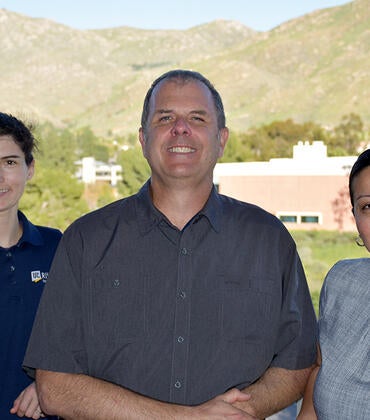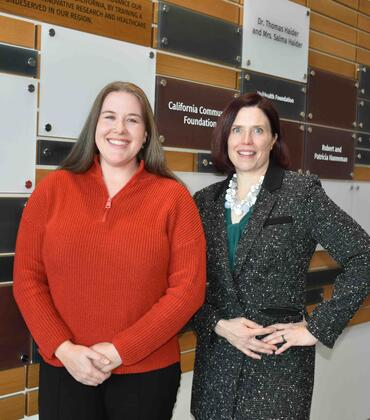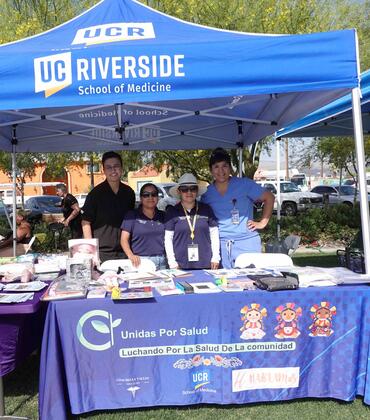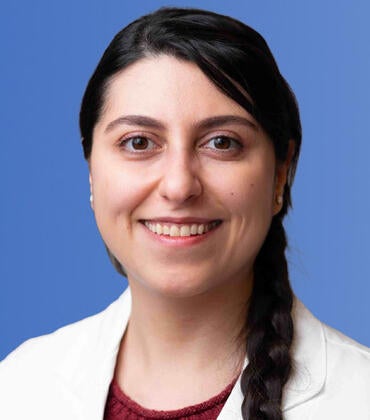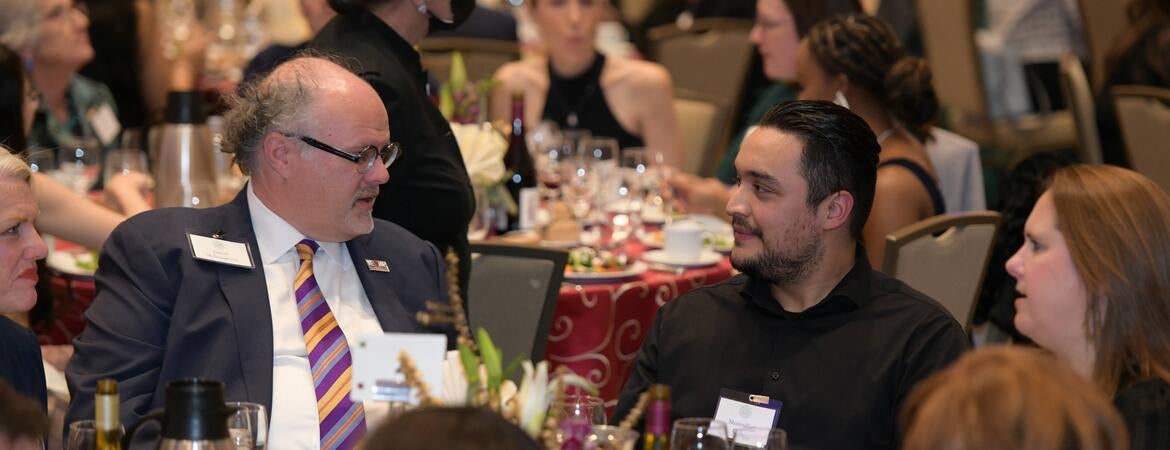
As a child growing up in Bakersfield, CA, Jarrod McNaughton remembers standing in lines with his mother to receive government-issued food. Now, as the CEO of Inland Empire Health Plan (IEHP), McNaughton helps provide affordable healthcare to inland Southern California families like his.
McNaughton had never considered working in healthcare, but his life changed in junior high school when he met a local assistant surgeon, Darel Courser, MD, who previously served as a mission doctor in Africa. "All of that perspective of the difference that can be made locally, and even broader, was pretty impactful for me,” McNaughton recalled.
The mentorship he received from Courser led to his career in healthcare and serving residents of inland Southern California. “I think it makes a difference when you have a connection and you understand the tough days that families go through,” McNaughton said, pointing out the similarities in income and healthcare access between his hometown and many areas of the Inland Empire. “But you also have a hope that not only can things change, but you can actually be someone who helps make things possible that others never even thought about.”
In his role at IEHP, a nonprofit health plan that serves over 1.6 million residents of Riverside and San Bernardino counties, McNaughton focuses on making sure current students have the same mentorship and career development opportunities that he did. He first heard about the health plan nearly a decade ago when he was CEO of an academic medical center on the East Coast. The center was struggling with their relationship with a local, similar health plan, and the then-CEO of IEHP, Bradley Gilbert, MD, invited McNaughton to visit and learn about their strategies for working with providers.
The visit helped McNaughton solve his challenges with the local East Coast organization, and when he later heard that IEHP was looking for a CEO, McNaughton was immediately interested.
Creating the IEHP scholarship
McNaughton, who joined IEHP in 2018, was impressed from the start by its work with organizations like the UCR School of Medicine. In fact, the plan’s collaboration with local medical schools helped motivate him to turn down another offer and take the CEO position. "I was just like, this is so cool, because you don't see in most markets a health plan like IEHP actively engaged and involved in the work of an organization like UCR School of Medicine,” he explained.
“That's a very unique thing, to be able to have that kind of culture and trusted relationships, where the dean can pick up the phone and give me a call if she's got something or vice versa,” he added. “It's something very sacred, and I think it calls us as an industry to make sure we continue that and to make sure that all of the work that's happened over the years to develop that is fostered for the future.”
McNaughton sought to continue and expand IEHP’s collaborations early in his tenure as CEO, starting by building on an established IEHP program, the Provider Network Expansion Fund (NEF). The NEF provides subsidies to healthcare entities that bring new provider talent to the IE and has spent more than $50 million bringing over 400 new providers to the region.
The program was so successful, McNaughton said, that IEHP wanted to create another program upstream in the process with the three medical schools in the area: University of California Riverside, Loma Linda University, and California University of Science and Medicine.
McNaughton recalled, “The first phone call I made actually was to Dean Deborah Deas just to chat with her and say, ‘We have this crazy idea. We want to provide medical school scholarships for students that are from the Inland Empire who want to stay here after they complete their residency. What do you think?’”
In fact, the UCR SOM already had just such a program, the Mission Award scholarship—but Deborah Deas, MD, MPH, the Vice Chancellor for Health Sciences and the Mark and Pam Rubin Dean of the UCR School of Medicine, told McNaughton there was room to expand.
“I said, if IEHP really wanted to make an impact and get a huge return on investment, then this was the place to invest, because once you give the students the scholarship you have guaranteed that physicians will return to the Inland Empire,” Deas recalled. “Many of the students we talked about had roots in the Inland Empire, which magnified their commitment to return and serve in the area.”
The rest, Deas said, was history.
In 2020, funding from the IEHP’s new Healthcare Scholarship Fund established the IEHP Dean’s Mission Award – Service Program, granting up to $47,000 annually to UCR SOM students for all four years of medical school provided they practice in needed disciplines and serve the Medi-Cal population in inland Southern California for five years following their residency training.
“We're just super excited about this, that it's able to give back to the community to keep kids here that are from the Inland Empire who understand this region, and I just am so grateful that the UCR School of Medicine was part of the template of how we actually created that with the other two medical schools here in the region,” said McNaughton. “We're now up to 50 medical school students in total every year that are coming through that program, getting a scholarship from one of the three medical schools, and UCR was truly a cornerstone in making that happen.”
Joey Abadilla, class of 2023, is one recipient of the IEHP Dean’s Mission Award. Abadilla, who grew up in the Inland Empire after immigrating to the U.S. from the Philippines, remembers resources in the local community helping his father recover from a heart attack soon after they arrived. As his father recently passed away, Abadilla said, “I wanted to honor his memory by serving and giving back to the community that adopted us.”
Abadilla became a surgical ICU nurse but, seeking a more central role in his patients’ care, decided to become a doctor. He chose to attend the UCR SOM because the school’s mission of serving the Inland Empire resonated with him. “I feel honored and excited that I have this opportunity to give back to the community that has helped me and my family when we first moved to the U.S.,” he said.
Like Abadilla, all the scholarship recipients (known as IEHP scholars) are committed to serving the community, which McNaughton said is an attribute that must be innate. "When you hear from students that are from the Inland Empire, who want to stay here and practice after they complete their program, you hear the dedication and passion,” he said. “That to me is over any kind of initiative or program that we can think of because that means that their heart's there, they’re fully engaged,” he added. “They’re not doing it for the paycheck. They're doing it for the calling.”
Some IEHP scholars were even IEHP Medi-Cal members themselves, and are now on track to serve future members. “That just gives you chills when you think about it,” McNaughton said. “When you hear those kinds of specific stories from the medical students, either you're going to walk away in tears because they're so moving, or you're going to walk away totally jazzed and stoked because you've seen the change that one person can make.”
IEHP and the SOM’s shared goals
McNaughton noted that the SOM and IEHP’s similar goals make them a perfect match to work together on the scholarship and other healthcare initiatives. At the UCR SOM, like at IEHP, “It's not about trying to create a workforce that's going to solve the problems in San Francisco. They're trying to figure out what's going on right here in the Inland Empire,” McNaughton said.
The SOM and IEHP share another essential goal: keeping physicians in the community. With just 41 primary care providers per 100,000 people in 2020, the Inland Empire has the lowest number of primary care providers by population in the state. “For me, the biggest success piece is to make sure that we keep physicians here that are trained here,” McNaughton said, explaining that doing so could improve not only community access to care but also quality of care rankings. “Unfortunately, we lose so many of them–they just leave and move outside of the region. And so that connection, to make sure that we keep them here, is vitally important to us.”
“It has been a tremendous honor to work with Jarrod and the IEHP team over the past few years," said Edna Yohannes, executive director of Development at the UCR SOM. "There is so much alignment in our missions to increase a diverse physician workforce to serve the Inland Empire communities and we are just getting started.”
For McNaughton, these shared relationships and goals tie back to his own experiences and journey into healthcare, increasing his personal commitment to the cause. “For me, the connections, relationships, and building of trust between patient and caregiver are really what make the UCR School of Medicine so uniquely different, and it's really my own story of how I got to where I was because of a physician who was local, connected to the community, and really felt that passion for the mission that they have in medicine,” he said. “The perspective that [UCR SOM] students have is so unique because it's grounded right here in the Inland Empire, so it’s completely different from a school that's outside of our area.”
Building a medical community
From McNaughton’s own experience meeting a mentor who changed the course of his life, he knows the importance of making young students aware of the possibilities, and specific steps, toward their future careers. “I hope that all of our schools of medicine in the Inland Empire can work upstream, make sure those connections are happening early. Quite frankly, if I hadn't met him until I was later in high school, I don't know that the same outcome would have happened,” he said. "It's not about them knowing exactly what they want to do in the future. It's more about connecting them to a real purpose and passion that they have for their life.”
Besides the financial side, part of IEHP’s approach to keeping strengthening relationships with the IEHP Scholars is building a community. They keep in touch with students, inviting them to conferences and other events during their time in medical school, then helping connect them with local providers when they’re looking for a job. “We want to keep them connected to the organization and make sure that they know that in the future, when they do finish their residency, that they have somewhere to land,” McNaughton said.
IEHP also works to foster collaboration across schools. McNaughton recalled hosting a meeting of the residency program directors and coordinators from the three local medical schools. While there was some healthy competition, he noted that the primary theme was cooperation to promote their goals in the region. “We're all trying our very best to create that workforce of the future to make sure that those that feel called to medicine are connected into that practice,” said McNaughton. “It's really about the students and making a huge community impact here locally,” he added. “That's exciting. It's a testament to who we are here in the Inland Empire.”
10 years of growth
McNaughton has enjoyed watching the UCR SOM grow over its first 10 years, and is looking forward to its future and continued collaboration with IEHP. “It is one of those hidden gems that is in our community,” he said. “It’s not just the count of how many medical students are going through. The actual connection that they're making to this community is just incredible.”
He hopes the 10th anniversary will help more people learn about the SOM’s work in the area, and inspire people who are interested in medicine to pursue that dream or to support the school.
“For me, the proof’s in the pudding, so if anybody's interested in making some type of a donation or corporate donation, just ask one of the students about their passion for this work,” he said. “I've been to a lot of places around the country, and the dedication that the students here have to serve those most vulnerable and most in need is incredibly inspiring.”
McNaughton himself is happy to give back to the community and help young people from medically underserved communities enter the healthcare field just like he did. “Looking back, I'm still just in awe of how all of that worked out and the puzzle pieces that came together to make it happen. But I also think it should give a lot of people hope that it can be done,” he said. “If a young kid from Bakersfield, California can do it, anybody can do it. There's no question of that.”

